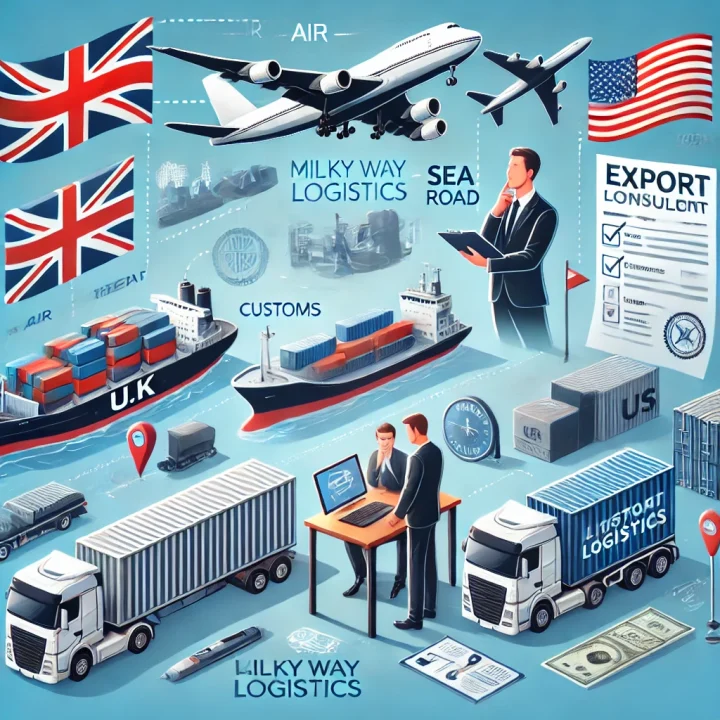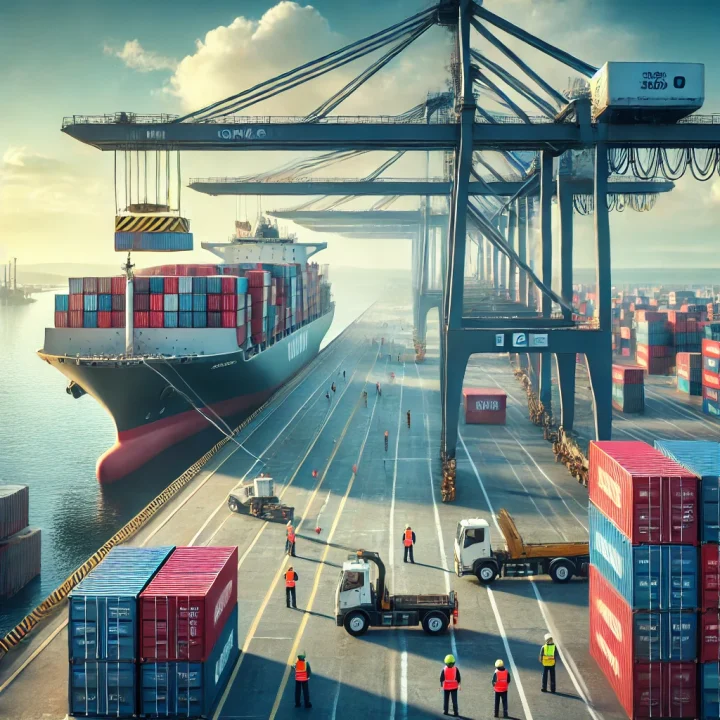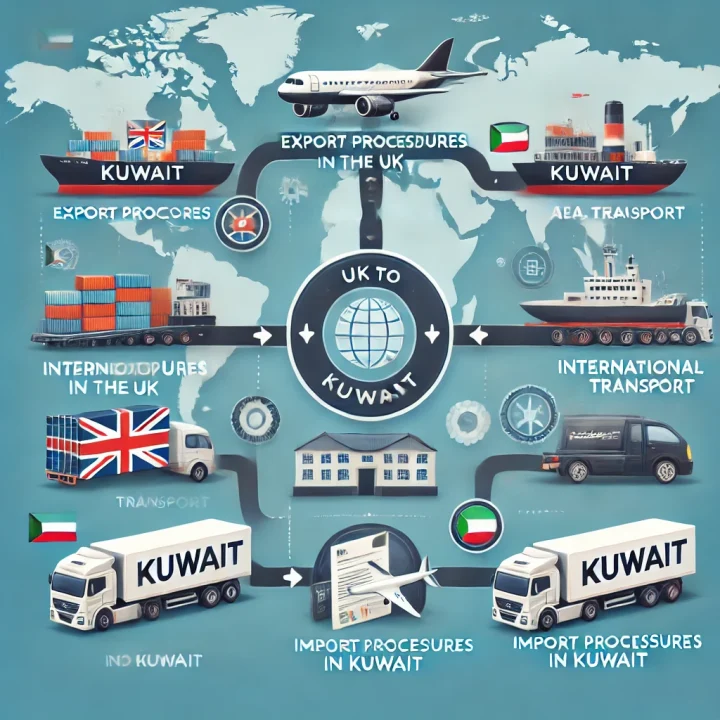Shipping to Spain: A Comprehensive Guide to Transport Options and Customs Regulations
Spain is one of Europe’s most vibrant markets, offering ample business opportunities and a gateway to further expansion into the European Union. Whether you’re a business owner or an individual shipping goods to Spain, understanding the available shipping options and navigating customs regulations is essential. In this blog, we’ll explore all modes of transport available for shipping to Spain, along with a detailed look at customs rules and regulations to ensure your shipment is smooth and hassle-free.
Modes of Transport for Shipping to Spain
When it comes to shipping to Spain, the mode of transport you choose will largely depend on the type, size, and urgency of your shipment. Below are the primary options available:
1. Shipping to Spain by Sea
For businesses dealing with large quantities of goods, sea freight remains the most cost-effective option. Major Spanish ports such as Barcelona, Valencia, and Algeciras handle a high volume of cargo each year, connecting Spain with global trade routes.
- Advantages of Sea Freight:
- Cost-effective for bulk shipments
- Suitable for a wide range of goods, including machinery, automobiles, textiles, and electronics
- Multiple container options (FCL, LCL) to suit different cargo sizes
- Transit Time: Shipping to Spain by sea can take anywhere between 7 to 30 days, depending on the origin and specific shipping route.
- Ideal for: Businesses shipping large quantities of non-urgent goods or those seeking cost-efficient solutions.
2. Shipping to Spain by Air
For urgent deliveries or high-value goods, air freight is the fastest option. Major Spanish airports like Madrid-Barajas and Barcelona-El Prat offer direct cargo services from many global hubs.
- Advantages of Air Freight:
- Quick transit times (1-3 days for international shipments)
- Reliable and efficient for time-sensitive or perishable goods
- Ideal for high-value or delicate items
- Transit Time: Shipping to Spain by air is the fastest option, usually ranging from 1 to 5 days depending on the distance.
- Ideal for: Businesses shipping time-sensitive goods, luxury items, or smaller, high-value shipments.
3. Shipping to Spain by Road
Road freight is an excellent option for shipments within Europe or for companies that need flexibility in shipping schedules. Spain has a well-developed road infrastructure that connects it with the rest of Europe.
- Advantages of Road Freight:
- Flexible delivery schedules
- Cost-effective for medium-sized shipments
- Suitable for both long-distance and regional deliveries
- Transit Time: Transit times vary, depending on the origin within Europe, but typically range between 2 and 7 days.
- Ideal for: Businesses within the EU looking for a cost-effective, flexible solution for shipping medium-sized shipments to Spain.
4. Shipping to Spain by Rail
Rail freight is gaining traction as a reliable, sustainable option, particularly for shipping goods within Europe. Spain is connected to the Trans-European Rail Network, making rail freight a viable alternative to both road and sea for medium to large shipments.
- Advantages of Rail Freight:
- Environmentally friendly with lower carbon emissions
- Reliable delivery schedules
- Cost-effective for large shipments over medium distances
- Transit Time: Transit times for rail freight can range from 3 to 12 days, depending on the departure location.
- Ideal for: Businesses prioritizing sustainability and seeking a cost-effective solution for larger shipments within Europe.
Customs Rules and Regulations for Shipping to Spain
Understanding Spain’s customs rules and regulations is crucial for ensuring a smooth import process. Below are the key aspects to consider:
1. Documentation Required for Shipping to Spain
Whether you’re shipping by sea, air, road, or rail, you’ll need the correct documentation to clear customs. The most common documents include:
- Bill of Lading: A contract between the shipper and the carrier detailing the goods being shipped and the terms of their transport.
- Commercial Invoice: A detailed invoice outlining the value, quantity, and nature of the goods being shipped.
- Packing List: A comprehensive list detailing the contents of the shipment.
- Certificate of Origin: A document stating the country where the goods were produced or manufactured.
- Import License (if applicable): Certain goods may require specific licenses for import into Spain, such as pharmaceuticals, alcohol, or firearms.
2. VAT and Duties
Spain, as part of the European Union, imposes value-added tax (VAT) on imported goods. The standard VAT rate in Spain is 21%, but certain goods may be subject to reduced rates (10% or 4%) depending on their category.
- Import Duties: The duty rates applied depend on the nature of the goods and their classification under the Harmonized System (HS) codes. Some goods may be exempt from duties if they fall under specific trade agreements or special programs.
3. Restricted and Prohibited Items
Before shipping to Spain, it’s important to verify whether your goods are subject to restrictions or prohibitions. Some commonly restricted items include:
- Pharmaceuticals and medical products: These often require special licenses.
- Weapons and explosives: Strictly regulated, requiring prior authorization.
- Tobacco and alcohol: Subject to additional taxes and regulations.
- Animal and plant products: Must meet health and safety regulations and often require additional documentation.
4. Customs Clearance Process
Once your goods arrive in Spain, they must go through the customs clearance process. This involves submitting the necessary documentation and paying any applicable duties and VAT.
- Customs Inspection: Spanish customs authorities may choose to inspect your shipment to verify the accuracy of your documentation and the nature of the goods. Delays may occur if your goods are selected for inspection, so it’s essential to have your documentation in order.
- Customs Brokers: Many businesses opt to work with customs brokers to ensure that the customs clearance process goes smoothly. Brokers can help with paperwork, classification of goods, and communication with customs officials.
5. EU Trade and Free Movement of Goods
If you’re shipping to Spain from within the EU, you’ll benefit from the free movement of goods. This means your shipment won’t be subject to customs duties or VAT upon entry into Spain, streamlining the process significantly.
Conclusion
Shipping to Spain offers numerous options, depending on the size, type, and urgency of your goods. Whether you opt for sea, air, road, or rail, each mode of transport has its own set of advantages, allowing you to tailor your shipping strategy to your needs.
Understanding Spain’s customs rules and regulations is equally crucial. Ensure you have the correct documentation, familiarize yourself with VAT and duties, and work with customs brokers when necessary to avoid delays. By staying informed and choosing the right shipping method, you can ensure that your goods reach Spain efficiently and without complications.
At Milky Way Logistics, we specialize in providing reliable and tailored shipping solutions for businesses and individuals. Whether you’re shipping by air, sea, road, or rail, we are here to guide you through the process, from selecting the right transport mode to navigating customs regulations.
Contact Milky Way Logistics today to learn more about how we can help you with all your shipping needs to Spain.













